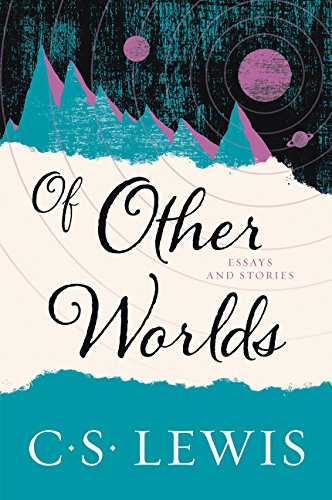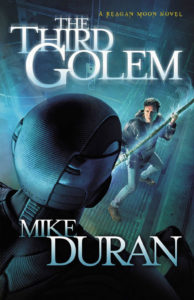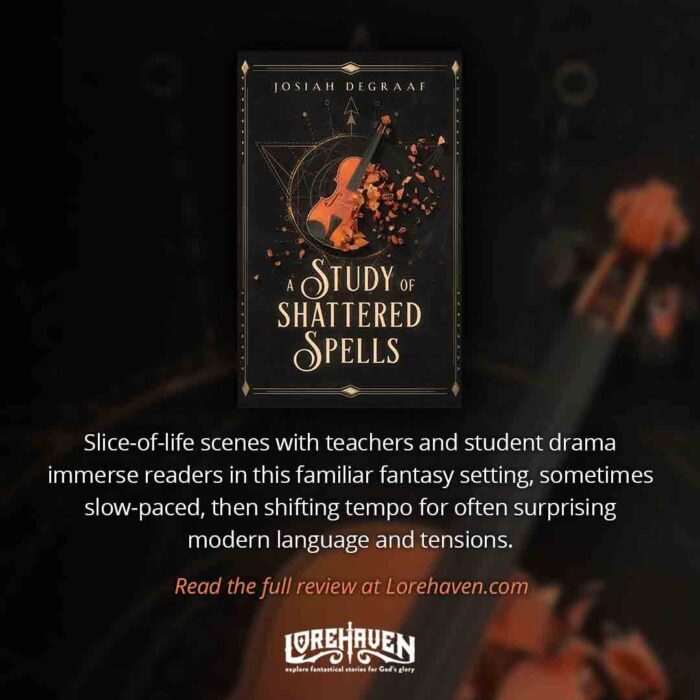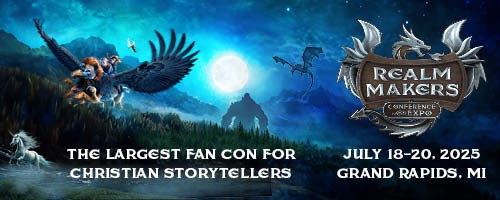35. Did C. S. Lewis Say It’s ‘Pure Moonshine’ to Create Stories that Teach Christian Truth?
Podcast: Play in new window | Download (Duration: 1:08:16 — 63.8MB) | Embed
Christian creators often say things like, “C. S. Lewis didn’t create his fiction to teach Christian truth. Instead he only used his imagination.” But is this what Lewis actually wrote? And is this how Christians ought to create stories today?
Stranger Than Fantastical Fiction
Concession stand
- This theme isn’t responding to anyone in particular. It’s more of a meme.
- This doesn’t enable the pragmatic, dull, shallow “creativity” we do critique.
- Also, this isn’t all about authors. We’re all created to be creative for God’s glory.
Lewis’s essay: ‘Sometimes Fairy Stories May Say Best What’s To Be Said’
- We’re exploring Lewis’s essay.
- You can likely find it copied to the internet with a unique phrase like “pure moonshine.”
- Our copy comes from a paperback called Of Other Worlds: Essays and Short Stories.
Here’s the main quote as we often read or hear it:
Some people seem to think that I began by asking myself how I could say something about Christianity to children; then fixed on the fairy tale as an instrument; then collected information about child-psychology and decided what age-group I’d write for; drew up a list of basic Christian truths and hammered out ‘allegories’ to embody them. This is all pure moonshine. I couldn’t write in that way at all. Everything began with images; a faun carrying an umbrella, a queen on a sledge, a magnificent lion. At first there wasn’t even anything Christian about them; that element pushed itself in of its own accord.
Lewis does quietly rebuke the notion of committees making or using stories as mere “teaching tools.” But he also doesn’t accept an idea of “creative freedom” for its own sake. He doesn’t believe in simply “The Author” enjoying images, but also “The Form” and “The Man.”
1. ‘The Author’
- Lewis dismisses “the renaissance ideas of ‘pleasing’ and ‘instructing.'”
- He isn’t addressing the entertainment/teaching dichotomy. Instead he says:
All I want to use is the distinction between the author as author and the author as man, citizen, or Christian. What this comes to for me is that there are usually two reasons for writing an imaginative work, which may be called Author’s reason and the Man’s. If only one of these is present, then, so far as I am concerned, the book will not be written. If the first is lacking, it can’t; if the second is lacking, it shouldn’t.
- Lewis talks about the author: the inspiration, images, imagination.
- He speaks of “the bubbling,” the disorganized array of ideas and pictures.
- Only then does he give the example of his own initial Narnian images.
- But we cannot stop there! Story-making doesn’t end with the images alone.
- Then “the form” organizes the images and “the man” gives them purpose.
2. ‘The Form’
- Lewis says of the initial outpouring of images and ideas:
This ferment leads to nothing unless it is accompanied with a longing for a Form: verse or prose, short story, novel, play, or what not. When these two things click you have the Author’s impulse complete.
- For Narnia, Lewis said the fairy-tale was a perfect form for “what’s to be said”:
As these images sorted themselves into events (i.e. became a story) they seemed to demand no love interest and no close psychology. But the Form which excludes these things is the fairy tale. And the moment I thought of that I fell in love with the Form itself: its brevity, its severe restraints on description, its flexible traditionalism, its inflexible hostility to all analysis, digression, reflections, and ‘gas’. . . . The fairy tale seemed the ideal Form for the stuff I had to say.
- If a creator kept “freedom” with images alone, there would never be a story.
- This is where the Form “disciplines” our imaginations so we can serve others.
 3. ‘The Man’
3. ‘The Man’
- Next we come to the surprising part: Lewis does believe in intentional faith.
- This is very important, and often ignored when we talk about Lewis’s stories!
- Alas, I suspect it’s also ignored by some Christians who want “creative freedom.”
- Lewis said, “At first there wasn’t even anything Christian about [his images].”
- Emphasis on at first. Remember when Lewis talked about man/Christian?
- Here it is. First Author with images and Form, then “the Man.” Capitalized:
Then of course the Man in me began to have his turn. I thought I saw how stories of this kind could steal past a certain inhibition which had paralysed much of my own religion in childhood. Why did one find it so hard to feel as one was told one ought to feel about God or about the sufferings of Christ? I thought the chief reason was that one was told one ought to. An obligation to feel can freeze feelings. And reverence itself did harm. The whole subject was associated with lowered voices; almost as if it were something medical. But supposing that by casting all these things into an imaginary world, stripping them of their stained-glass and Sunday school associations, one could make them for the first time appear in their real potency? Could one not thus steal past those watchful dragons? I thought one could.
- Lewis has given Form to the image “bubbling,” and now he gives it purpose.
That was the Man’s motive. But of course he could have done nothing if the Author had not been on the boil first.
- Yes, Virginia, Lewis did want to create stories to “teach” Christian truth.
- You can affirm that, while still rejecting the “Sunday school associations.”
- A story starts with image “bubbling,” then Form, but doesn’t end there.
- This is “truth told slant,” to paraphrase Zack’s favorite Emily Dickinson quote:
Tell all the truth but tell it slant —
Success in Circuit lies
Too bright for our infirm Delight
The Truth’s superb surprise
As Lightning to the Children eased
With explanation kind
The Truth must dazzle gradually
Or every man be blind —
Applications for Christian story fans (and creators)
- Perhaps we can quit apologizing about making stories with Christian purpose.
- If you’re a Christian writer, you’re not just Author, you’re also human.
- And as a human, you’re a new person in Christ. Your story has purpose.
- But if you try to start with that Human purpose, the story could go wrong.
- And the story would go wrong if you limit it to just images and Form.
- Again, to reference and clarify Lewis’s quote near the essay’s beginning:
. . . There are usually two reasons for writing an imaginative work, which may be called Author’s reason and the Man’s [reason]. If only one of these [reasons] is present, then, so far as I am concerned, the book will not be written. If the first [reason] is lacking, it can’t [be written]; if the second [reason] is lacking, it shouldn’t [be written].
- If an author says, “I’m a Christian author,” always start with the images!
- But if an author says, “I’m just a Christian who writes,” finish with purpose.
- We must enjoy both identities, reflecting our own Author and the Man, Jesus!
 Next on Fantastical Truth
Next on Fantastical Truth
What happens when a “paranormal reporter, terminal underachiever, and staunch cynic of the human race” stumbles into a world of real gods, spirit beings, and a lot of weirdness? And how can paranormal and horror stories, like Mike Duran’s Reagan Moon series, uniquely help Christians grow in their imagination of our real world’s battles between good and evil? Mike joins us in our next episode.

































Share your thoughts about this podcast episode